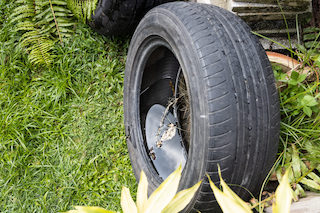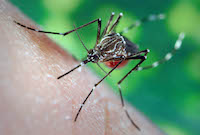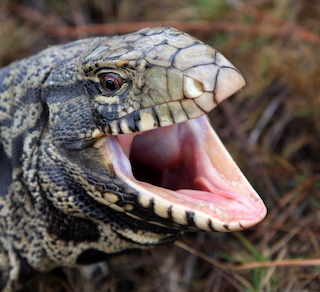Squirrels and raccoons may be cute but they, along with other animals like deer and armadillos, can cause significant headaches for homeowners and gardeners. Whether they're rooting through your trash, tearing up your garden, or presenting a disease threat to your pets and families, nuisance animals should be encouraged to live where they best belong: the wild.
UGA Extension wants to educate you on how to prevent wildlife from becoming a nuisance, and measures to take if animals do become a nuisance to you and your family.
Our Programs and Services
-
On-Site and Telephone Consultation Available in many situations for home owners and consumers.
Recent Publications
-
Home & Garden Georgia Pest Management Handbook Series: Vertebrate Pest Control (SB 48-13) This section of the Home & Garden Edition covers control of vertebrate pests such as beavers, chipmunks, deer, and bats, as well as repellents and how to manage reptiles, amphibians and birds. Note th…
-
Home & Garden Georgia Pest Management Handbook Series: Introduction and Table of Contents (SB 48-01) Beginning in 2022, the Home & Garden Edition has been updated biennially. When purchasing a product based on a first-year recommendation of the Handbook, check the current product label before purchas…
-
Home & Garden Georgia Pest Management Handbook Series: Pesticide Emergencies, Frequently Asked Questions, and Other Useful Information (SB 48-02) This section of the Home & Garden Edition covers what to do in the event of a pesticide emergency, important contacts such as poison control, frequently asked pesticide questions, abbreviations and eq…
-
Georgia Pest Management Handbook Series: Vertebrate Pest and Wildlife Nuisance Control (SB 28-09) Additional resources from the GPMH Commercial Edition.
Websites
UGA-affiliated sites
UGA Department of Animal and Dairy Science Learn more about the animal and dairy science department at the UGA College of Agricultural and Environmental Sciences.
UGA Warnell School of Forestry and Natural Resources This college homepage includes resources targeted to students, researchers, and communities with ecological concerns.
External sites
Georgia Wildlife Resources Division Provides information and resources on how to prevent and handle nuisance wildlife encounters.
Invasive Mammals of Concern in Georgia Descriptions of animal pests by scientific and subject name and includes descriptions and identifying images.
-
Mosquito Season Prep With January rain totals well above normal across the Southeast, it is a good time to take inventory of where standing water is holding and what can be done to eliminate it.

-
Mosquito Season Ongoing Residents should be sure to prevent mosquitoes from getting inside as temperatures cool and we open windows again.

-
Report Tegus Adaptable and hungry, Argentine black and white tegus pose a significant threat to native wildlife, from gopher tortoises to ground-nesting birds such as bobwhite quail, wild turkeys and whip-poor-wills.

